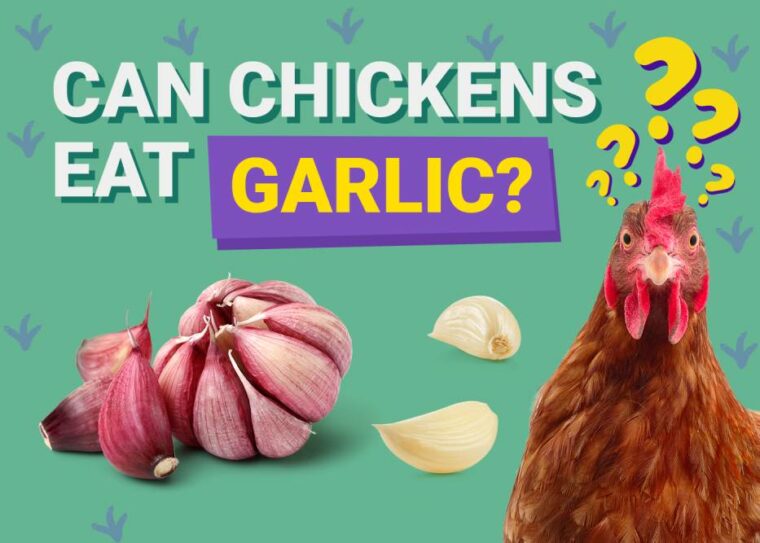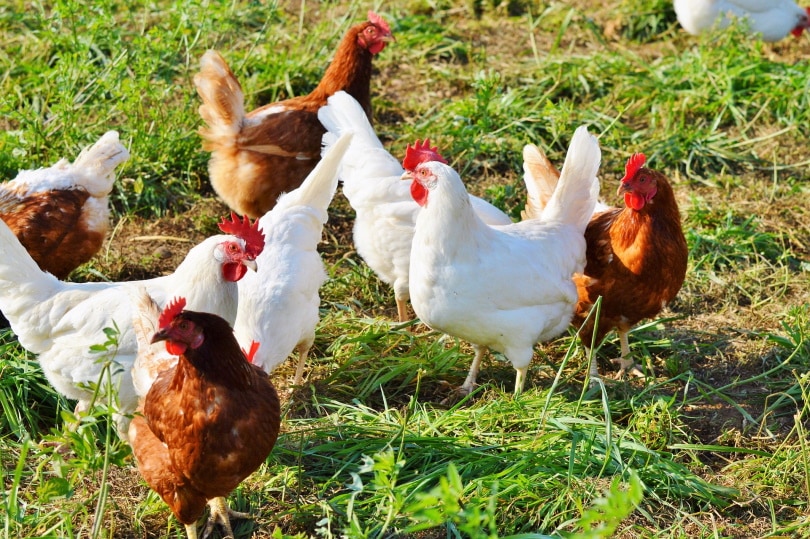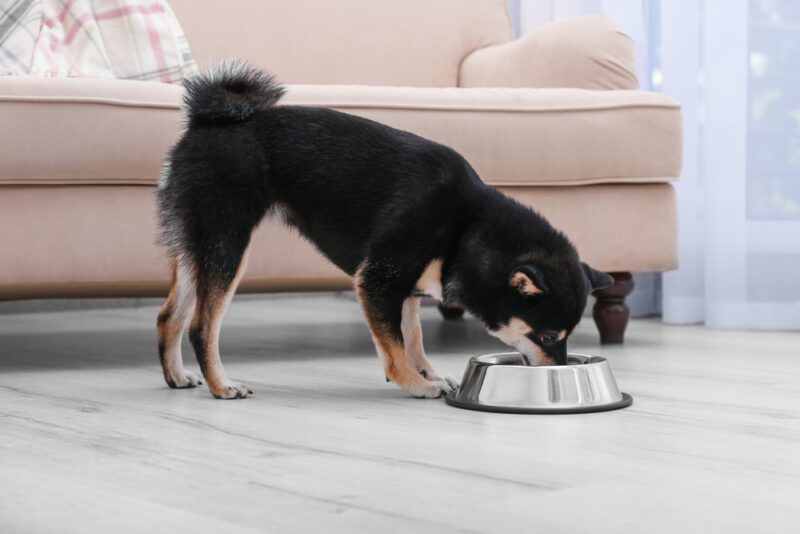
Garlic is a flavorsome vegetable that consists of several cloves that form a bulb of the aromatic plant. It is used heavily in cooking for humans, and as well as being an antibacterial, it has antifungal properties and can prevent protozoan infection. It strengthens the immune system and makes other ingredients more easily digestible.
Garlic has also long been fed to chickens for many of the same benefits it offers people. However, there is such a thing as too much of a good thing. Chickens can eat garlic but in moderation, feeding too much garlic can cause an imbalance of bacteria that may lead to digestive problems in your flock.
Benefits

How to Feed Garlic to Chickens and How Much to Give
You should only give raw garlic, rather than cooked, and it can be administered in the following ways:
Crushing garlic means that the beneficial allicin is released and it is this ingredient that acts as an antiviral to boost the immune system and ward off viruses. Once crushed, garlic will start to lose its potency after 24 hours and will have little effect at all after 48 hours, so only crush the garlic when you’re ready to feed and refresh it after 48 hours.
Garlic does have a strong flavor, and if your chickens or chicks are not used to that flavor, you may need to introduce the ingredient gradually or your brood may stop eating or drinking. Add a small amount of garlic to food or water and give this separately to their usual food. Alternatively, add a small amount to their usual food and gradually increase the amount, but do check that they are still eating.

Does Garlic Powder Work?
The use of garlic powder is somewhat contentious. The garlic is heat processed to turn it into powder. This process does not cause any harmful reaction, but some people do believe that it reduces the effectiveness of the powder. Others believe that garlic powder is just as effective as fresh garlic and easier to prepare. Where possible, it is best to give fresh garlic, but you can keep garlic powder as a reserve.
How Often Can I Give Chickens Garlic?
As long as you stick to the guidelines above, it is considered safe and beneficial to give garlic to your chicken flock twice a week. Any less than this and you may not see the full benefit, but feeding more often could lead to an imbalance in bacteria in your chickens.

Can You Give Chickens Too Much Garlic?
Generally speaking, too much of anything can be unhealthy for chickens, just as with any animal. If you do notice your flock starting to exhibit any symptoms after starting to feed garlic or after increasing their garlic intake, reduce the amount you give and keep an eye on your chickens’ health.
What Foods Are Poisonous to Chickens?
As well as looking for foods that are good for your chickens, you should also ensure that you do not give any ingredients that are bad for them.

Conclusion
Garlic is a beneficial ingredient for people, and research points to it being good for chickens, too. It can improve general health, prevent and beat some illnesses, and it can even improve egg yield while reducing the ammonia smell in the chicken coop.
However, you can feed too much garlic, and it should be fed raw—ideally fresh—just twice a week to get the best results and without the potential danger of causing bacteria imbalance in your chicks.
Featured Image Credit: PetKeen.com










